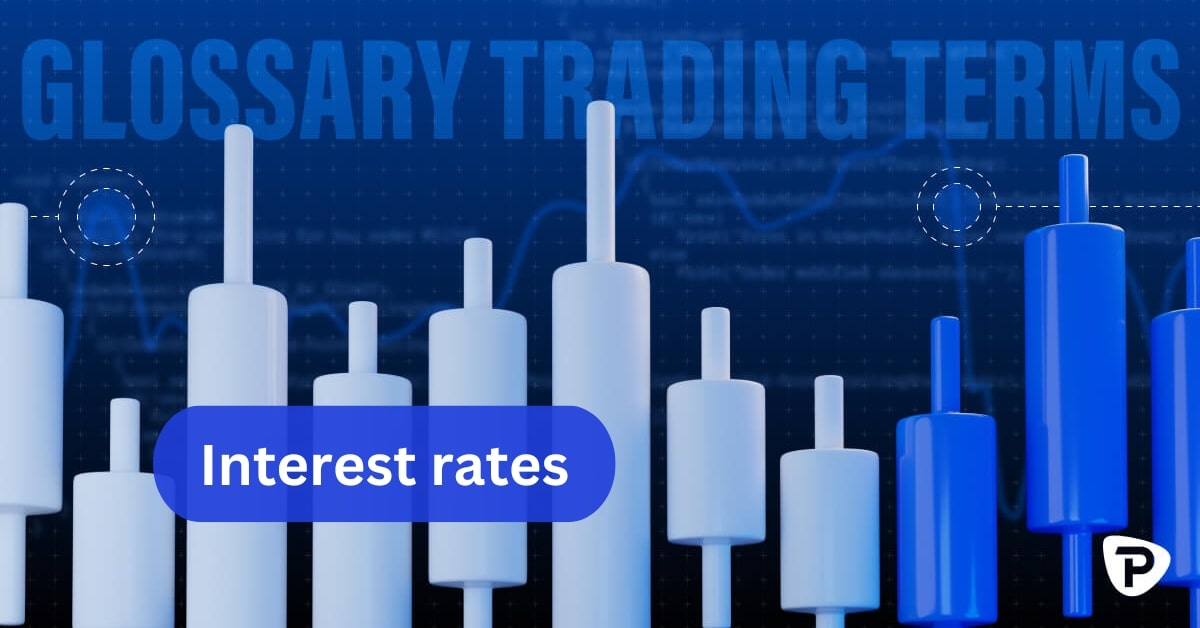Interest rates
Interest rates affect many markets - including currencies, shares, indices and commodities. Big moves often happen when central banks raise or cut rates, or even when they hint at future changes.

Interest rates: definition
Interest rates are the cost of borrowing money, shown as a percentage. Central banks (like the Bank of England, or US Federal Reserve) set base interest rates to help control inflation, support growth, and keep the economy stable. These decisions can strongly influence markets.
Why interest rates matter to traders
Interest rates affect many markets - including currencies, shares, indices and commodities. Big moves often happen when central banks raise or cut rates, or even when they hint at future changes.
- Shares and indices (like the FTSE 100 or S&P 500) may rise when rates are cut, as borrowing is cheaper, and growth may speed up. But they can fall when rates go up, as higher costs may slow business activity.
- Commodities like gold and oil can move when rate changes affect the US dollar. Since many commodities are priced in dollars, a stronger or weaker dollar can make them more or less expensive.
- Currencies are strongly influenced by interest rate differences between countries. Traders often buy currencies with higher rates and sell those with lower ones, creating trading opportunities.
Understanding how interest rates impact markets can help you spot trends and make informed decisions when trading CFDs or spread betting.
High vs low interest rates
High interest rates
- Stronger currency: Attracts foreign investment, pushing the currency’s value up.
- Pressure on stocks: Expensive borrowing can slow growth and hurt company profits.
- Lower demand for commodities: A stronger currency can make items like oil and gold more expensive for global buyers.
- Trading opportunities: Traders may profit by buying higher-rate currencies and selling lower-rate ones.
Low interest rates
- Weaker currency: May reduce investor interest, leading to a drop in value.
- Support for stocks: Cheaper loans can help companies grow and boost consumer spending.
- Higher commodity prices: A weaker currency and inflation expectations can lift prices.
- More risk-taking: Traders may use more capital in growth stocks or emerging markets.
Example
You expect the Bank of England to raise interest rates. Thinking this could strengthen the pound and weigh on UK stocks, you go long on GBP/USD and short on the UK 100 index. If the rate hike happens and markets react as expected, both trades could work in your favour.
Key takeaway
Interest rates play a major role in how markets move. Whether you trade CFDs or spread bet on forex, indices, commodities or shares, keeping an eye on interest rate decisions can help you stay ahead of market trends.
The material provided here has not been prepared in accordance with legal requirements designed to promote the independence of investment research and as such is considered to be a marketing communication. Whilst it is not subject to any prohibition on dealing ahead of the dissemination of investment research we will not seek to take any advantage before providing it to our clients.
Pepperstone doesn’t represent that the material provided here is accurate, current or complete, and therefore shouldn’t be relied upon as such. The information, whether from a third party or not, isn’t to be considered as a recommendation; or an offer to buy or sell; or the solicitation of an offer to buy or sell any security, financial product or instrument; or to participate in any particular trading strategy. It does not take into account readers’ financial situation or investment objectives. We advise any readers of this content to seek their own advice. Without the approval of Pepperstone, reproduction or redistribution of this information isn’t permitted.